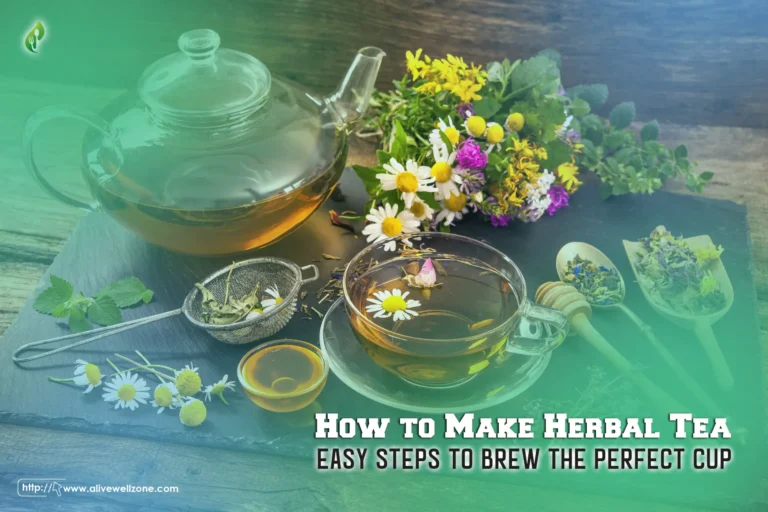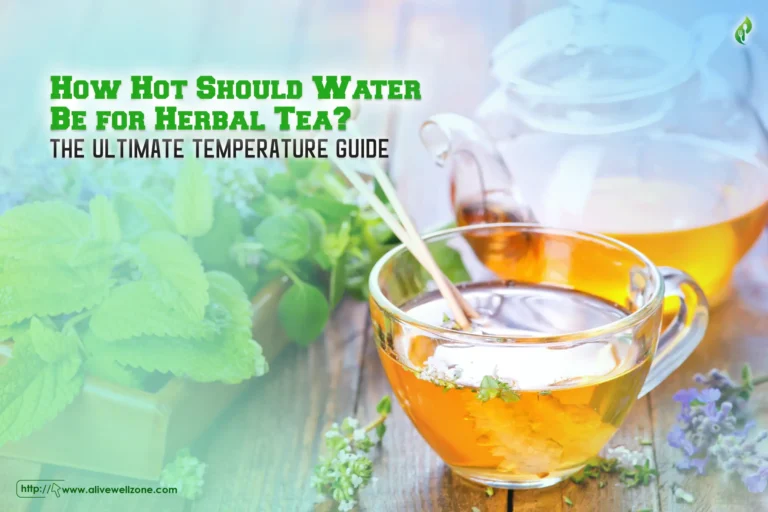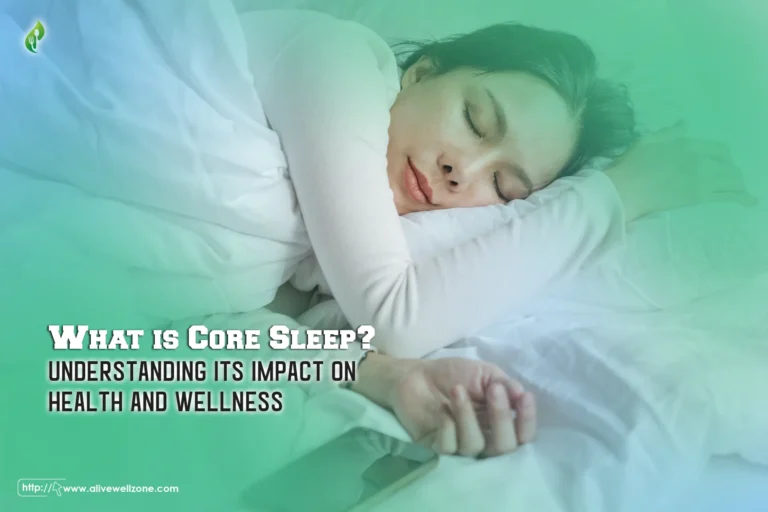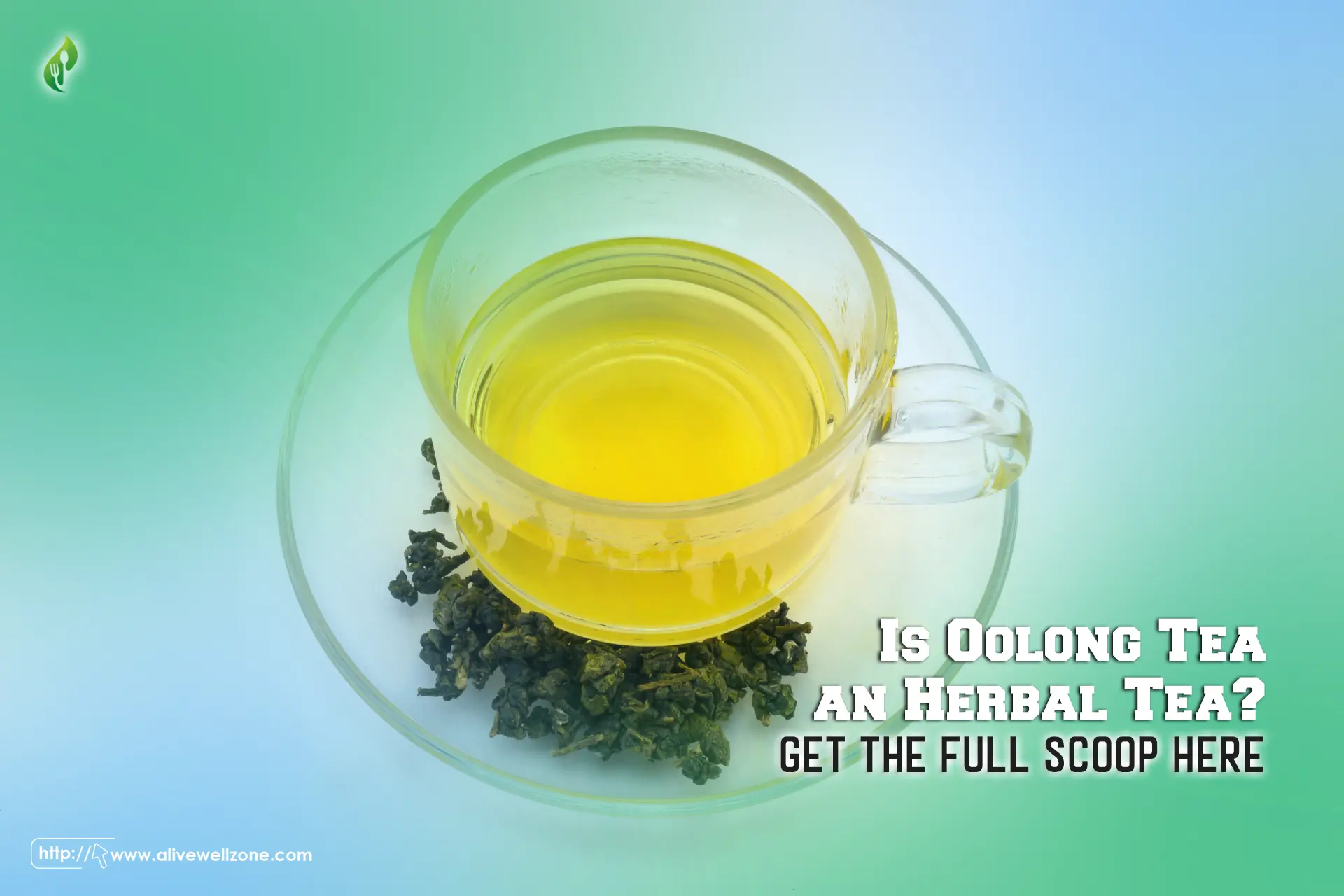
Last Updated on May 7, 2025 by Helena Akter
Is oolong tea an herbal tea? Well, many tea lovers wonder about this. And many people mistakenly think oolong falls into the herbal category. However, the reality is different!
Oolong tea is not a herbal tea. This tea is produced from the Camellia sinensis plant, like green and black teas. It’s partially oxidized, giving it a distinct flavor and caffeine content. Whereas, herbal teas are made from fruits, flowers, herbs, and most importantly, they’re caffeine-free.
We’ll discuss the unique process behind oolong tea here. You’ll also learn about its caffeine content and health benefits. Finally, you’ll understand why oolong is not an herbal tea but still offers wellness advantages.
Key Takeaways
- Oolong Tea: Oolong tea is not a herbal tea. it’s made from the Camellia sinensis plant, like green and black teas, but undergoes partial oxidation (20% to 80%). It offers a unique flavor range, from light to robust.
- Caffeine Content: Oolong tea has less caffeine than black tea but more than green tea. Its caffeine levels depend on brewing time. Also, it contains minerals like calcium and magnesium.
- Pregnancy Risks: Oolong tea is not recommended during pregnancy due to its caffeine content. It may harm the developing baby if consumed in excess.
What is Oolong Tea?
Oolong tea has deep roots in Chinese history, dating back to the Ming Dynasty (1368-1644). It was first called “black dragon tea,” which is what “oolong” means in Chinese (“wu long”).
Like green, black, and white teas, it comes from the Camellia sinensis plant. What sets these teas apart is how they’re processed. Aside from that, oolong tea is especially popular in China and Taiwan, where it’s often enjoyed at social events.
Like other brewed teas, it contains no calories. Today, once reserved for emperors, oolong tea is now enjoyed globally for its taste and potential health benefits.

is oolong an herbal tea?
Oolong tea is not an herbal tea. It’s made from the same plant as green and black tea, but it’s processed differently. On the other hand, herbal teas are made from plants like herbs, fruits, or flowers and don’t contain any tea leaves.
Moreover, oolong tea goes through a special process called partial oxidation. It usually ranges from 20% to 80%, giving it a unique flavor. This process can be done in different ways, so oolong tea can taste very different depending on how it’s made.
Unlike herbal teas, oolong tea has caffeine. So, remember that oolong tea is not the same as herbal tea, even though they both have health benefits. Also, you can check out this comprehensive list of herbal teas to explore different types.
Difference Between Oolong Tea and Herbal Tea
Oolong tea and herbal tea are distinct beverages, each with unique origins, processing methods, and health benefits. Let’s take a look at the table to know how they differ —
| Attribute | Oolong Tea | Herbal Tea |
| Origin | China and Taiwan | Grown and sourced globally |
| Source | Camellia sinensis plant (tea leaves) | Various herbs, flowers, and spices |
| Type | True tea | Not a true tea (tisanes) |
| Oxidation | Partially oxidized | No oxidation (not true tea) |
| Caffeine Content | Moderate caffeine | Usually caffeine-free |
| Flavors | Ranges from floral to toasty | Diverse, depending on the herbs used |
| Health Benefits | Rich in antioxidants, supports metabolism | Varies; often used for calming or digestion |
| Preparation | Steep at 180-200°F for 3 to 5 minutes | Steep at 200-212°F for 5 to 7 minutes |
| Traditional Usage | Chinese and Taiwanese tea culture | Medicinal or relaxation purposes worldwide |
Is Oolong Tea Good for Weight Loss?
Yes, oolong tea is good for weight loss. A study looked at overweight people in China. They drank 300 mL of oolong tea four times a day for six weeks. Interestingly, more than half of them lost at least 1 kilogram after six weeks.
Again, a study gave mice a high-sugar, high-fat diet and also gave some of them oolong tea. The mice that got oolong tea gained less belly fat than the mice that didn’t.
The study also tried green tea and black tea. These teas also helped mice lose belly fat. In fact, the mice that drank green tea also ate less.

Is Oolong Tea Caffeinated?
Yes, oolong tea does have caffeine. On average, an 8- ounce cup of oolong tea has about 38 mg of caffeine, while green tea has around 29 mg per cup. Meanwhile, a typical cup of black tea has about 47 mg of caffeine, but it can sometimes have up to 90 mg.
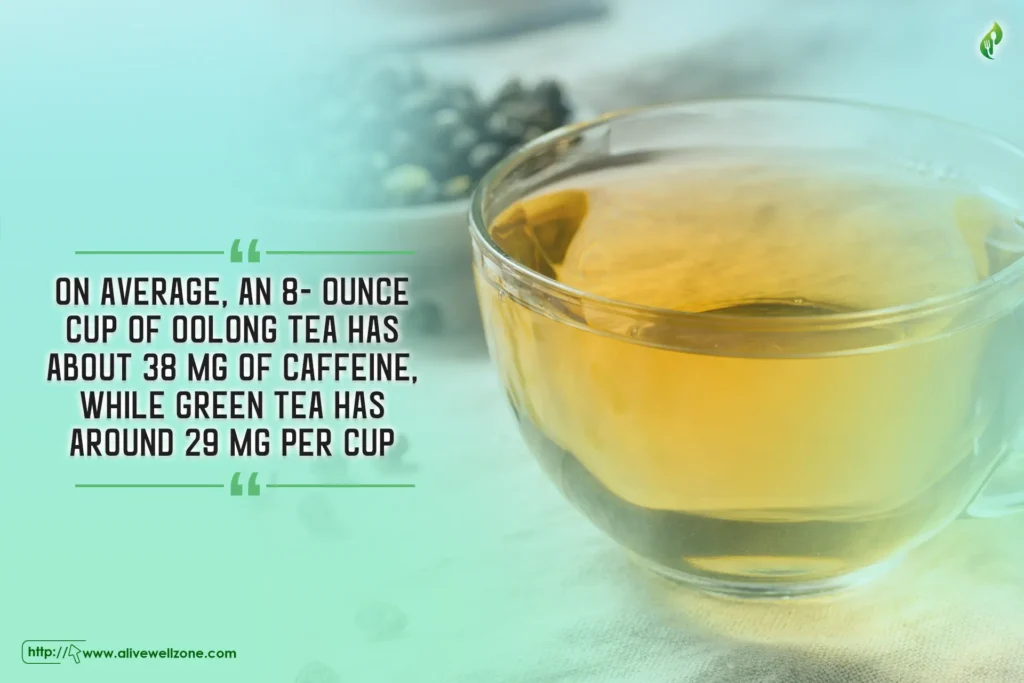
So, the caffeine content of oolong tea falls between green tea and black tea.
Besides, the amount of caffeine in oolong tea can vary. Usually, it depends on how long the leaves are steeped. The longer the steep, the more caffeine is released. In addition to caffeine, oolong tea also provides small amounts of important minerals like calcium, magnesium, and potassium.
However, you can reuse the same leaves for multiple cups to reduce the caffeine in each subsequent cup.
Is Oolong Tea Safe During Pregnancy?
No, oolong tea is not safe during pregnancy. That’s because it comes from the Camellia sinensis plant, which contains caffeine. You need to remember that caffeine is a stimulant that should be limited during pregnancy.
Moreover, caffeine can cross the placenta. Since a baby’s liver is not fully developed, it cannot process caffeine well. As a result, even small amounts of caffeine can affect the baby more than they would an adult.
Besides, research shows that excess caffeine during pregnancy may increase the risk of preterm birth, birth defects, or low birth weight. It may also raise the chances of miscarriage or stillbirth.
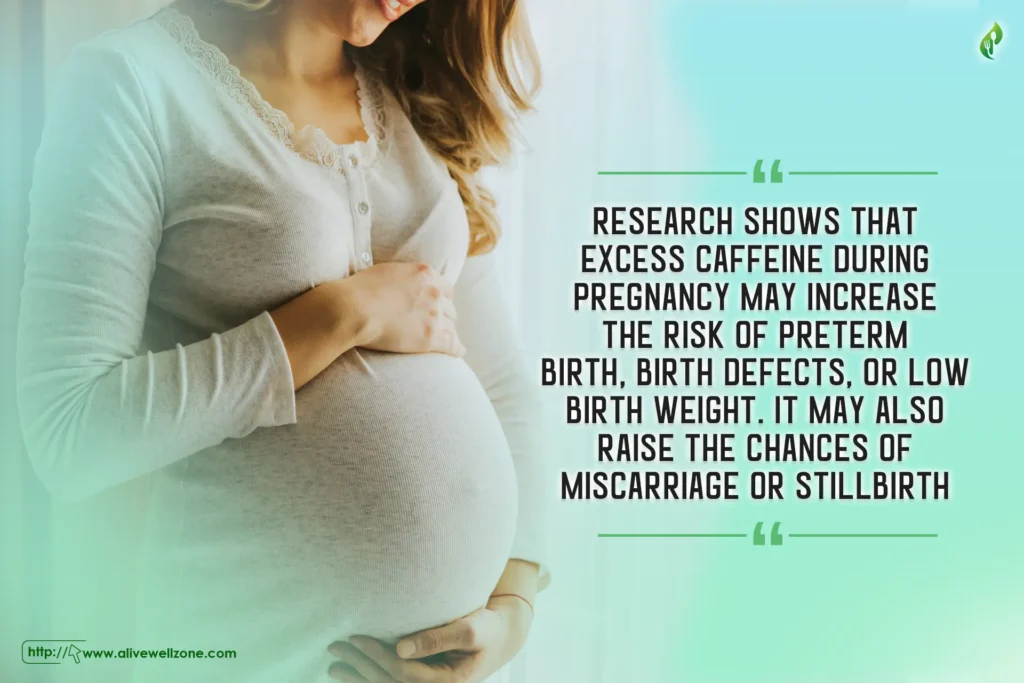
However, these risks are generally low if pregnant women keep their caffeine intake below 200 mg per day. Usually, it’s equivalent of 2 small cups of coffee.
Is Oolong Tea Green Tea?
No, oolong tea isn’t green tea. In fact, it differs from green tea, though they have some similarities. Both come from the Camellia sinensis plant, but the main difference is the oxidation level.
Green tea undergoes minimal oxidation, keeping its fresh, green taste and color. Oolong tea, however, is partially oxidized. This gives some oolongs a flavor closer to green tea, while others taste more like black tea, depending on the degree of oxidation.
Another difference is in how the leaves are shaped. Oolong leaves are often rolled, twisted, or curled, which affects both the flavor and aroma.
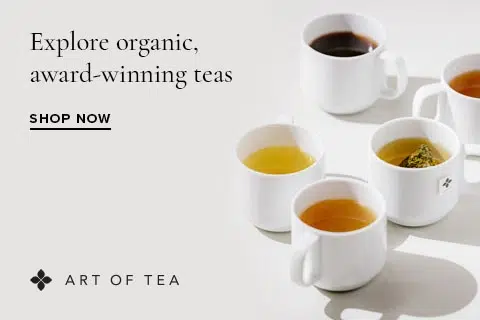
Is Oolong Tea Black Tea?
Oolong tea isn’t black tea, though they share some similarities. Black tea is fully oxidized, giving it a darker color and stronger flavor. Oolong tea, on the other hand, is only partially oxidized, which results in a variety of flavors and colors.
While some dark oolongs may look like black tea, their taste is quite different.
Black teas usually have malty, bold flavors, while dark oolongs can have more complex notes, such as roasted, fruity, or floral tones. The tea leaves also differ, with black tea using smaller buds and oolong featuring larger, rolled leaves.
See, oolong tea holds its own place. It offers a more layered taste compared to fully oxidized black teas.
Final Words
In conclusion, is oolong tea considered an herbal tea? No, it’s not. While oolong tea might be confused with herbal tea, it’s not the same. Both offer health benefits, but oolong tea comes from the Camellia sinensis plant.
The key difference is in processing! Oolong tea undergoes partial oxidation, while herbal teas are made from various plants, flowers, or fruits without tea leaves. If you’re looking for a beverage with a caffeine boost, oolong tea is a great choice.
That said, if you want to avoid caffeine, opt for herbal tea.
FAQs
Is Oolong tea acidic?
Oolong tea has a pH range of 6 to 7.5, placing it in a neutral to mildly acidic zone. Its medium oxidation creates balanced, fruity, and floral flavors. That’s why oolong tea is popular among those who like mild tea without a bitter or acidic taste.
What is oolong tea similar to?
Oolong tea is similar to both green and black teas, as it is semi-oxidized. It combines the fresh, bright taste of green tea with the rich, full-bodied flavor of black tea. So, it’s a balanced option for tea drinkers who enjoy the best of both worlds.
What is the best time to drink oolong tea?
The best time to drink oolong tea is in the morning. Its caffeine content helps improve focus and alertness. Meanwhile, it also improves metabolism, which may support weight loss. So, starting your day with a cup of oolong can offer both energy and health benefits.
Do you put milk or lemon in oolong tea?
Milk is not recommended for oolong tea, as it can overpower the delicate flavors. Instead, you can add lemon, lime, mint, or natural sweeteners like honey to improve its taste.

